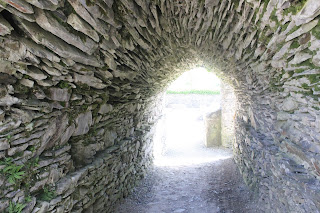I get funny looks from people when they see my doodles sometimes.
I mess around with different lettering styles and one of my favorite phrases to
draw is "You Are Loved"
"That's kind of cliche,
isn't it?"
"Who's that for?"
"Well DUH!"
The comments get even better when they see the phrases I've recently started drawing on my arms in sharpie. My left arm says "You Matter;" while my right arm reminds me that "Love Is Louder."
"Why do you keep drawing on
yourself?"
"Is that a tattoo?"
What only a few people realize is that these are all reminders to myself. A way of blocking out the nasty voice at the back of my head that likes to whisper lies to me whenever I'm alone.
"No one actually likes you.
Everyone thinks you're annoying. You should just leave them alone, they're only
putting up with you because they have to."
See, the thing is, I know that all of these statements are false.
I know that I have friends and family who care about me, who love to be around
me, but no matter how hard I remind myself of these facts, the slightest crack
in my mental walls allows those whispers to echo loudly around my head. And
when I'm left alone with myself and those nasty thoughts for long enough, they
eventually start to seem true and before long, the cracks seal up, trapping
those thoughts inside along with me.
The best way I have found to force those lies out is to be around people I know care about me, who refuse to leave me alone when they know I'm slipping into one of those moods. But when it's 2am and the majority of the world is asleep, I'm left alone with my thoughts with no way to pull myself out of my own head, away from the lies.
Having the words "You are Loved" peeking out whenever I get into my wallet is a reminder, even when I don't need it, that people really do care. Rewriting "You Matter;" and "Love is Louder" on my arms every few days is yet another constant reminder that I have a purpose in the world and that love drowns out the lies coming from my own mind.
The writing on my arms reminds me that it is not the false thoughts in my head that define me. If I refuse to let them keep a hold over me, they can pull me down but they can't overcome me.


































